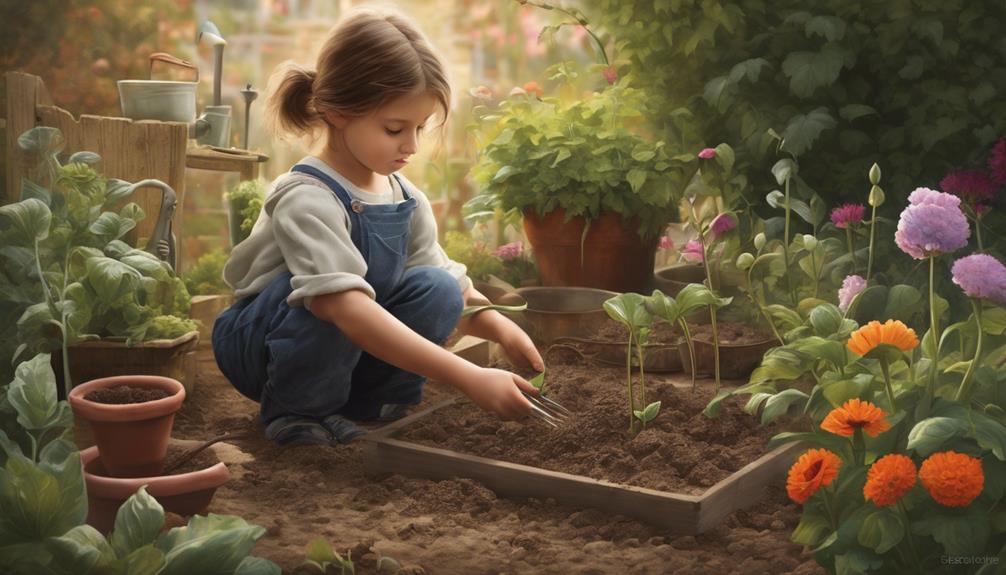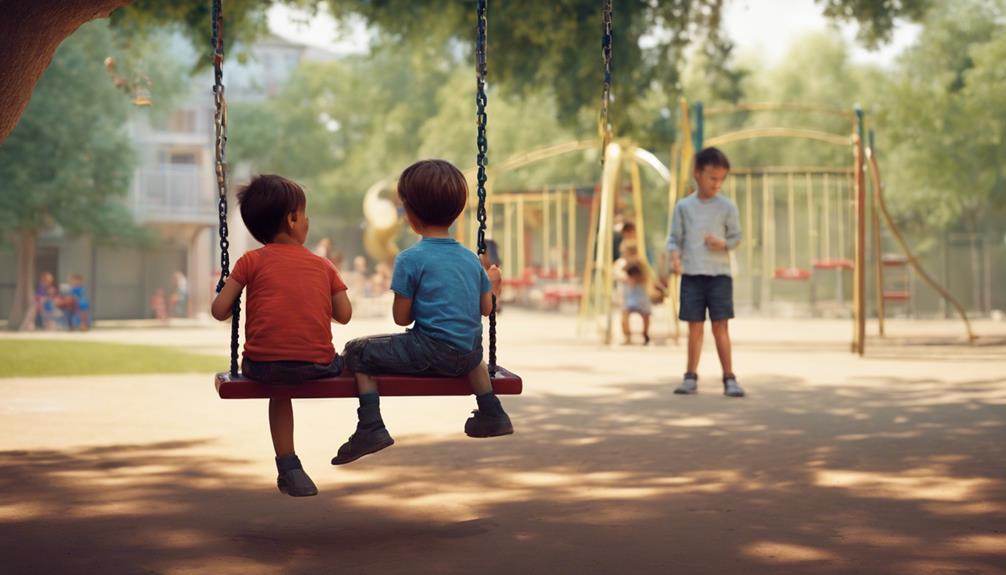Imagine a child standing at a crossroads, where their future trajectory is altered permanently by the decision to veer off in a new direction.
As parents, we face the challenge of guiding our children through the maze of emotions that come with divorce.
But what if we told you that amidst the chaos, there are hidden treasures waiting to be discovered?
Join us as we unravel the complexities of helping children navigate the benefits of divorce, paving the way for a brighter tomorrow.
Key Takeaways
- Children develop resilience and coping skills post-divorce.
- Encourages emotional understanding and communication.
- Promotes growth, adaptability, and conflict resolution.
- Fosters healthy coping mechanisms and emotional expression.
Exploring Positive Changes After Divorce
After divorce, children often experience significant positive changes that contribute to their personal growth and resilience. When parents navigate the complexities of divorce amicably, children witness firsthand the importance of empathy and healthy relationships. This exposure lays a strong foundation for children to cultivate their own understanding of what it means to build and maintain positive connections. Through the lens of their parents, children can gain insights into effective conflict resolution strategies, equipping them with valuable skills for handling disagreements in their own lives.
Moreover, post-divorce, children frequently become more self-reliant and independent in various aspects of their lives. They learn to adapt to new routines and responsibilities, fostering a sense of autonomy that can benefit them as they grow older. These newfound abilities not only help children navigate the changes within their family structure but also empower them to face challenges with resilience and confidence.
Building Resilience in Children

Navigating the aftermath of divorce, we focus on nurturing children's resilience, empowering them to adapt and thrive amidst change and adversity. Building resilience in children post-divorce is crucial in helping them cope with the impact of their parents' separation. By instilling resilience in children, we are providing them with the emotional strength and coping skills needed to navigate the challenges that come with divorce. Resilient children are better equipped to handle stress and uncertainty, promoting their mental health and overall well-being. Through promoting problem-solving and positive thinking, we can help children of divorce develop the resilience necessary to overcome obstacles. These efforts result in children exhibiting greater self-confidence and the ability to bounce back from adversity. By investing in building resilience in children, we are setting them up for success in facing the changes and uncertainties that divorce brings.
| Benefits of Building Resilience in Children | ||
|---|---|---|
| Emotional Strength | Coping Skills | Problem-Solving Skills |
| Self-Confidence | Adaptability | Positive Thinking |
| Mental Health | Well-Being | Bouncing Back from Adversity |
Nurturing Emotional Understanding
To support children in navigating the emotional complexities post-divorce, fostering a deep understanding of their feelings is essential. Children need our support in recognizing and processing their emotions during this challenging time. Encouraging open communication about feelings creates a safe environment for them to express themselves freely. Validating their emotions and experiences helps them feel understood and accepted, fostering resilience and emotional intelligence.
Teaching children coping strategies equips them with healthy coping mechanisms to manage their emotions effectively. By helping children understand and articulate their feelings, we guide them towards better emotional regulation and self-awareness. This emotional understanding lays the foundation for building their emotional strength and adaptability in the face of adversity. Through these practices, children can develop the skills needed to navigate the ups and downs that come with the changes post-divorce, enhancing their overall well-being and growth.
Encouraging Growth and Adaptability

Encouraging children to embrace growth and adaptability post-divorce is pivotal in fostering resilience and empowering them to navigate life's challenges with strength and confidence. Witnessing their parents' divorce can actually equip children with valuable life skills that contribute to their personal development.
Here's how children can benefit from the adaptability and growth that can arise from the experience:
- Developing Adaptability Skills: Children can learn to adapt to changes and challenges, building their capacity to face uncertainties in the future.
- Promoting Personal Growth: Divorce can encourage resilience and independence in children, helping them grow stronger emotionally.
- Learning Conflict Resolution: Observing co-parenting dynamics can teach children how to resolve conflicts peacefully.
- Fostering Empathy: Navigating their own and their parents' emotions can foster empathy in children.
- Empowering Relationship Choices: Going through divorce can empower children to make wiser relationship decisions based on the lessons learned from their parents' experiences.
Through these experiences, children can emerge more adaptable, resilient, and equipped to handle the complexities of relationships and emotions.
Fostering Healthy Coping Mechanisms
During challenging times like divorce, it's essential to foster healthy coping mechanisms in children to help them navigate their emotions and uncertainties effectively. It's important to encourage children to express their emotions openly and provide a safe space for discussion. By teaching children healthy coping mechanisms to deal with the emotional challenges of divorce, we can help them understand that it's okay to feel a range of emotions and that they are not alone in their experiences. Validating children's feelings and reassuring them of our love and support during this difficult time is crucial. We can foster resilience in children by promoting positive ways to navigate and process the changes that come with divorce.
| Support Group | Normal Reactions | Child Feels |
|---|---|---|
| Provides community | Sadness and anger | Confusion and fear |
| Offers empathy | Withdrawal and mood swings | Abandonment and guilt |
| Shares experiences | Resistance to change | Insecurity and loneliness |
| Encourages growth | Seeking attention | Loss and grief |
Frequently Asked Questions
How Can Children Benefit From Divorce?
Children benefit from divorce by gaining safety, emotional growth, relationship insights, empathy, and conflict resolution skills. It can shield them from harm, nurture their well-being, and equip them with valuable life lessons. Divorce can be a path to positive growth for children.
How Do I Guide My Child Through Divorce?
We guide our child through divorce by acknowledging their feelings, encouraging open communication, and providing stability. We model healthy conflict resolution and empathy, helping them grow emotionally. Our support helps them navigate this challenging time with understanding and resilience.
How Can I Help My Grown Child Through Divorce?
We can offer our grown child support during their divorce by providing emotional reassurance, creating a safe space for open communication, respecting their decisions, and guiding them through the process. We'll ensure they know they're not alone and promote self-care and well-being.
What Is Most Important in Helping Children Cope With Divorce?
The most important aspect in helping children cope with divorce is providing unwavering emotional support, fostering open communication, creating a safe space for expression, maintaining stability, and encouraging healthy coping mechanisms to navigate the challenges with love and reassurance.
Conclusion
In guiding children through the benefits of divorce, we've explored positive changes, built resilience, nurtured emotional understanding, encouraged growth, and fostered healthy coping mechanisms.
By validating their emotions, maintaining stability, and promoting open communication, we can support their emotional well-being and help them navigate this challenging time.
Remember, by modeling healthy behaviors and offering reassurance, we can empower our children to thrive and build resilience for the future.










